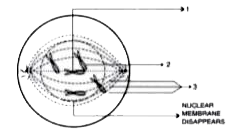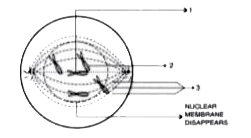Given below is a diagram representing a stage during mitotic cell division in an animal cell:
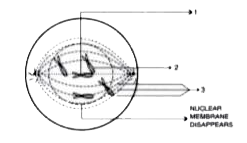
Name the stage that follows this stage of mitosis. How can this stage be identified ?
Step by step video & image solution for Given below is a diagram representing a stage during mitotic cell division in an animal cell: Name the stage that follows this stage of mitosis. How can this stage be identified ? by Biology experts to help you in doubts & scoring excellent marks in Class 11 exams.
Updated on:21/07/2023Topper's Solved these Questions
- CELL CYCLE AND CELL DIVISION BOOK - ICSECHAPTER - CELL CYCLE AND CELL DIVISION EXERCISE - REVIEW QUESTIONS (VERY SHORT ANSWER TYPE QUESTIONS (WITH ANSWERS))
23 Videos
- CELL CYCLE AND CELL DIVISION BOOK - ICSECHAPTER - CELL CYCLE AND CELL DIVISION EXERCISE - REVIEW QUESTIONS (LONG ANSWER TYPE QUESTIONS)
8 Videos
- CELL CYCLE AND CELL DIVISION BOOK - ICSECHAPTER - CELL CYCLE AND CELL DIVISION EXERCISE - REVIEW QUESTIONS (ANALOGY TYPE QUESTIONS)
5 Videos
- CELL : THE UNIT OF LIFE BOOK - ICSECHAPTER - CELL : THE UNIT OF LIFE EXERCISE - Differentiate Between
18 Videos
- CELLULAR RESPIRATION IN PLANTS BOOK - ICSECHAPTER - CELLULAR RESPIRATION IN PLANTS EXERCISE - REVIEW QUESTIONS ( LONG ANSWER TYPE QUESTIONS)
15 Videos
Similar Questions
Knowledge Check
Given below is a diagram representing a stage during mitotic cell division. Answer the questions that follow:
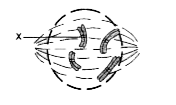
Name the stage that follows the one shown hereAInterphaseBAnaphaseCTelophaseDMetaphaseGiven below is a diagram representing a stage during mitotic cell division Answer the questions that follow:
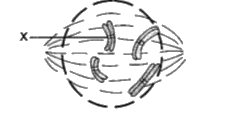
Name the stage that follows the one shown hereAInterphaseBAnaphaseCTelophaseDMetaphaseGiven below is a diagram representing a stage during mitotic cell division Answer the questions that follow:
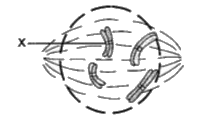
Identify the stageATelophaseBProphaseCMetaphaseDAnaphase
Given diagram representing a stage during mitotic cell division in an animal cell:
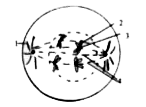
Name the parts labelled 1, 2, 3 and 4.
View SolutionGiven diagram representing a stage during mitotic cell division in an animal cell:
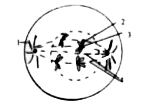
What is the function of part 3?
View SolutionGiven below is a diagram representing a stage during mitotic cell division in an animal cell:
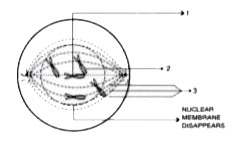
Identify the above stage। Give a reason to support your answer.
View SolutionGiven below is a diagram representing a stage during mitotic cell division. Answer the questions that follow:
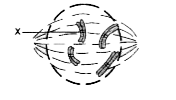
Identify the stage
View SolutionGiven below is a diagram representing a stage during mitotic cell division Answer the questions that follow:
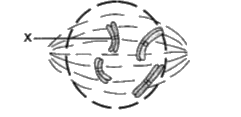
Label part marked 'X'
View Solution

